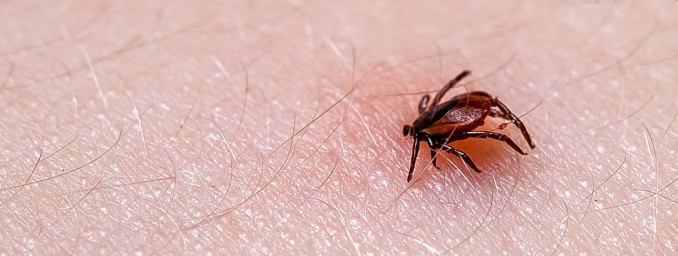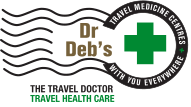Tick Borne Encephalitis Vaccine for Travellers
September 25th, 2016
Tick Encephalitis a.k.a. Tick-borne encephalitis (TBE) is a serious brain infection. It is caught from a simple tick bite in Europe. In Australia, our ticks cause paralysis but in Europe, they spread an infection to the brain that can cause brain damage or be fatal. Happily, two-thirds of sufferers get no symptoms. The infection is most dangerous in persons over 50 years of age.
How common is Tick encephalitis?
Tick encephalitis is the most common insect-transmitted viral infection in Europe and central and eastern Asia.
It is estimated that every year, it is estimated that over 10,000 persons are hospitalised with tick encephalitis. We have no reliable figures for the scope of the problem in travellers, but it is not common.
The TBE virus is a close relative of the viruses that cause yellow fever, dengue fever, and Japanese encephalitis In most instances, humans catch this disease from the bite of an infected tick; however, in some TBE affected areas, persons can catch it from drinking raw milk or eating milk products from infected goats, sheep, or cattle.
WHERE does Tick encephalitis commonly occur?
TBE occurs in Europe. The most commonly affected countries are southern Germany, Switzerland, Austria, the Czech Republic, Slovakia, Hungary, Slovenia, the Baltic countries, Poland, parts of Scandinavia, and European Russia. Here is a link to a map of risky areas.
Activities like camping, bicycling, fishing, collecting mushrooms, orienteering or forest work, increase the risk of catching this disease. The virus has been found at altitudes up to and even above 1,500 m.
The risk is negligible for people who remain in urban or unforested areas and who do not consume unpasteurized dairy products.
Insect repellent and protective clothing will decrease exposure to ticks.
A good and safe vaccine is available in Europe. It has been used for many years to protect the local populations. In Australia, the vaccine is not available on a general script, but is available through specialised travel medicine clinics. Tick encephalitis vaccine is recommended for persons visiting forest areas, particularly in the summer when ticks are more active.
At Dr Deb’s clinic we have the vaccine on hand for at-risk travellers. Dr Deb is an authorised prescriber for Tick Encephalitis vaccine. The normal course is given as three doses one at day 0, then another after 1-3 months and third after 5-12 months. Many travellers from Australia are leaving at short notice, so there is a ‘rapid course’ of vaccine if the trip is less than 6 months duration: this is two doses needs to be started about a month before travel to allow time to be effective. The vaccine costs approximately $200 per dose, plus the doctor’s consultation fee.




Hello! I am just enquiring about the TBE vaccine. My daughter, 19, is currently on exchange in Switzerland where they have just released warnings about TBE escalation. She will get the first two doses while she is there as she will be doing plenty of hiking, climbing and camping in the Alps. With regard to the third dose, she will be back in Australia by then but will continue to travel frequently to likely hotspots. Is it hard to get approval and what would that require. We are in Brisbane too so geography is not an issue. Many thanks and kind regards, Amanda Suttie
HI thanks for your question and how lovely for your daughter to have this adventure
She would get virtually instant approval for accessing the third dose here. We just need to ensure we have supplies so when she makes an appointment ( 0732219066) just tell the admin staff that she needs the booster for TBE and they will check we have in stock…( we usually do but sometimes supplies can be an issue )
regards Dr Deb